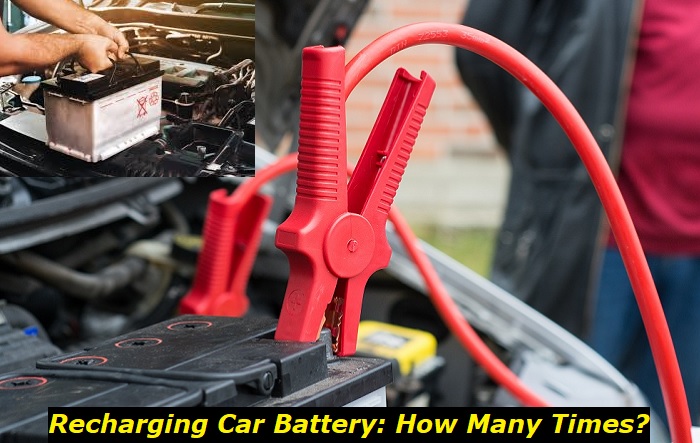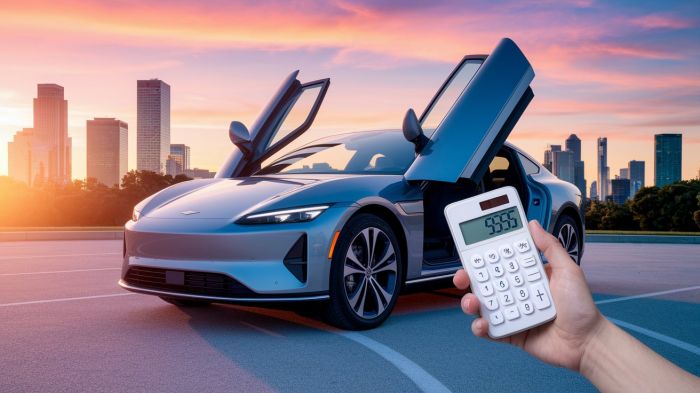In this article, we're going to talk about why a battery discharges, how many times can it be recharged, how to prolong its life and when you should change it.
Car battery charging highlights
- Critical voltage:lower than 12 volts
- Target voltage:12.5 volts
- Charging voltage:14 - 14.7 volts
- Charging time:defined by tender
- Risks:battery death
- DIY solution:yes
- Tools needed:charger, power socket
- Price:$1

How to tell that the battery in your car is discharged?
Whenever you're facing a certain problem, the most important thing you do before rushing to buy some expensive brand-new parts is to troubleshoot the issue and make sure what exactly is wrong with your car. Here are a few indicators of a discharging car battery:
- Central locking doesn't work
One of the most obvious ways you can tell that your battery is not charged properly is if you try to unlock the doors using the key fob, but nothing happens. Of course, this might also indicate that there's an issue with the key itself, or with the central locking system, but they don't fail nearly as often as batteries do. If you happen to have the spare key for your car, you could try using that one as well, to exclude the fob as being the problem.
- Clicking noise and lights flashing when trying to start the vehicle
When you try to start the vehicle and turn the key into the ignition, you might notice that all of the warning lights from the instrument cluster are flashing and you hear a very strange intermittent clicking noise. This might be because the battery doesn't have enough power to start the engine.
- The vehicle is slow to start
If the cranking is way slower than it usually is, this might be a sign of a battery that is on its last legs. This could also be a sign of a failing starter motor, but since it's a more difficult component to replace, you might want to check the battery first.
- Various warning lights in the instrument cluster
If you're getting many warning lights in the instrument cluster, yet nothing seems to be wrong, this might indicate that your battery isn't charged enough. Not having enough charge causes the electrical components to think that there's an issue, hence the warning lights.
- Electrical equipment doesn't work as it should with the engine turned off
Windows seem to go up and down very slowly, the radio doesn't work and the headlights are very dim with the engine turned off? You might want to check your battery.
- High idle
If you've managed to start your car, but the idle seems to stay higher than usual, that could be because the ECU has detected that the battery isn't charged enough and to try and solve the problem, it tells the engine to run at higher revs which help charge the battery faster.
Why do batteries lose charge?
As you might know, batteries are serviceable items and they need to be changed after a few years since they will never last as long as the car itself will. Here are some of the reasons the battery might have gone flat:
- Electrical equipment remained active for multiple hours with the engine off
Have you checked that you've turned off the headlights before locking your car? Some vehicles do not automatically do so when you leave the car parked. Also, this is not only related to the headlights. You might have also forgotten something plugged into the 12V power outlet of the vehicle, which could have also discharged the battery.
- Car wasn't started for a long period
If the car hasn't been started in a month, for example, you can expect to find a flat battery. This depends a lot on the type of battery the vehicle uses, but typically, they don't hold their charge for too long if the vehicle is not started for too much time.
- Battery exposed to extreme temperatures
Has the car been sitting for a few days in the freezing cold? This might be one of the reasons it has lost pretty much all of its charge. Too much heat doesn't help either, so it's important to keep your car in normal temperatures, as much as possible.
- Too many short trips
If you only use the car for going to the supermarket that is nearby and then drive back, the alternator won't charge the battery enough and you might find that soon it will start to lose charge.
- Parasitic battery drain
What basically happens, is a certain electrical component is drawing electricity from the battery, even though everything is turned off. This is something quite annoying, since most of the times, the actual power drain source is not very obvious.
- Loose/corroded battery connections
With time, the battery connections might have come loose because of all the vibrations, which could cause it to lose charge. Also, because of humidity in the battery compartment, the terminals might have become corroded.
- Faulty alternator
The purpose of the alternator is to charge the battery while the engine is running and if it's faulty, it will not charge the battery as it should. If for some reason it stops working completely, you will usually see a warning light in the instrument cluster that looks like a red battery.
- Dead battery
Because of age and use, the battery itself might have simply reached the end of its lifecycle, in which case it might need replacing.
How many times can car batteries be recharged?
The most important thing that you need to know is that car batteries are very sensitive when it comes to being completely discharged. So, if the battery in your vehicle happens to have no charge at all a few times, don't be surprised if it fails very quickly.
However, if they aren't completely dead and they still have some voltage left (10-11 volts), it should be OK to charge them a couple of times, even though it would be best to investigate if there's an actual problem if you frequently find yourself in the situation of needing to jump-start your car.
How to prolong the life of the battery?
Normally, batteries last for about 4 or 5 years, but there have been cases in which they have lasted up to 10 years, because of good quality and good vehicle maintenance, and ideal driving conditions. Here are a few things you could do to prolong the battery's life:
- Drive more often and go on longer trips
Only going on very short trips is not only harmful to the battery, but also to the engine. We would advise you to use the car as intended and drive longer distances and when it comes to short trips, maybe think about walking, riding a bicycle or using public transport, when possible.
- Make sure you turn everything off before leaving the vehicle parked
Are the headlights off? There's nothing in the power outlet(s) of the vehicle? If the answer to these questions is yes, then you are safe to turn off the engine and lock the car.
- Avoid keeping the vehicle in extreme conditions
Of course, the weather isn't something that you could change, but if you have the possibility, park your car in a garage, or as far away as possible from any extreme conditions such as desert heat and freezing cold.
- Keep the battery clean
Clean the terminals and the connections from time to time, since they are many times the root of your problem.
- Try using a trickle charger
This is something you will especially need to consider if you own a classic car that you only use from time to time. These devices are great for keeping just enough charge in the battery.
- Check the battery regularly
Checking the battery's voltage from time to time is a good idea since it would be much better to replace a battery before it fails.
- Check the alternator regularly
When you check the battery, we would advise you to also check the alternator at the same time, since a failed alternator might leave you stranded on the side of the road and you definitely don't want that to happen.
Final thoughts
Although overlooked by many drivers out there, the battery of the vehicle is a vital component, and keeping it healthy and checking it from time to time will save you a lot of time, stress, and money later.
About the authors
The CarAraC research team is composed of seasoned auto mechanics and automotive industry professionals, including individuals with advanced degrees and certifications in their field. Our team members boast prestigious credentials, reflecting their extensive knowledge and skills. These qualifications include: IMI: Institute of the Motor Industry, ASE-Certified Master Automobile Technicians; Coventry University, Graduate of MA in Automotive Journalism; Politecnico di Torino, Italy, MS Automotive Engineering; Ss. Cyril and Methodius University in Skopje, Mechanical University in Skopje; TOC Automotive College; DHA Suffa University, Department of Mechanical Engineering






Add comment